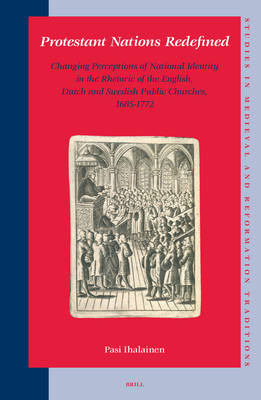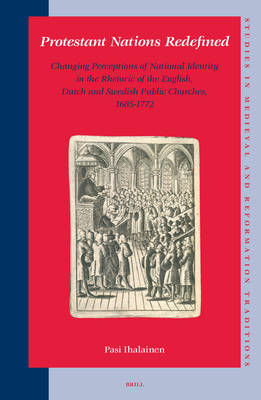
Je cadeautjes zeker op tijd in huis hebben voor de feestdagen? Kom langs in onze winkels en vind het perfecte geschenk!
- Afhalen na 1 uur in een winkel met voorraad
- Gratis thuislevering in België vanaf € 30
- Ruim aanbod met 7 miljoen producten
Je cadeautjes zeker op tijd in huis hebben voor de feestdagen? Kom langs in onze winkels en vind het perfecte geschenk!
- Afhalen na 1 uur in een winkel met voorraad
- Gratis thuislevering in België vanaf € 30
- Ruim aanbod met 7 miljoen producten
Zoeken
Protestant Nations Redefined
Changing Perceptions of National Identity in the Rhetoric of the English, Dutch and Swedish Public Churches, 1685-1772
Pasi Ihalainen
€ 236,95
+ 473 punten
Omschrijving
This volume reconstructs the various meanings attached to the concepts of nation and fatherland in eighteenth-century English, Dutch and Swedish political preaching. After discussing sermons as a medium of national ideology, it analyses the decline of the Israelite prototype of nation, the changing relationship between religious and national communities, international Protestantism, the weakening stereotype of popery, redefinitions of the Protestant monarchy, and the diversification of national vocabulary. It also compares the rise of non-theological languages of classical patriotism, freedom, economy and nature in three political cultures, revealing how the secular worship of nation arose even within the public presentation of religion. As post-nationalist comparative history, this study will be welcomed by readers with varied national and scholarly backgrounds interested in the Enlightenment and nationalism.
Specificaties
Betrokkenen
- Auteur(s):
- Uitgeverij:
Inhoud
- Aantal bladzijden:
- 688
- Taal:
- Engels
- Reeks:
- Reeksnummer:
- nr. 109
Eigenschappen
- Productcode (EAN):
- 9789004144859
- Verschijningsdatum:
- 23/09/2005
- Uitvoering:
- Hardcover
- Formaat:
- Genaaid
- Afmetingen:
- 155 mm x 235 mm
- Gewicht:
- 1354 g

Alleen bij Standaard Boekhandel
+ 473 punten op je klantenkaart van Standaard Boekhandel
Beoordelingen
We publiceren alleen reviews die voldoen aan de voorwaarden voor reviews. Bekijk onze voorwaarden voor reviews.









